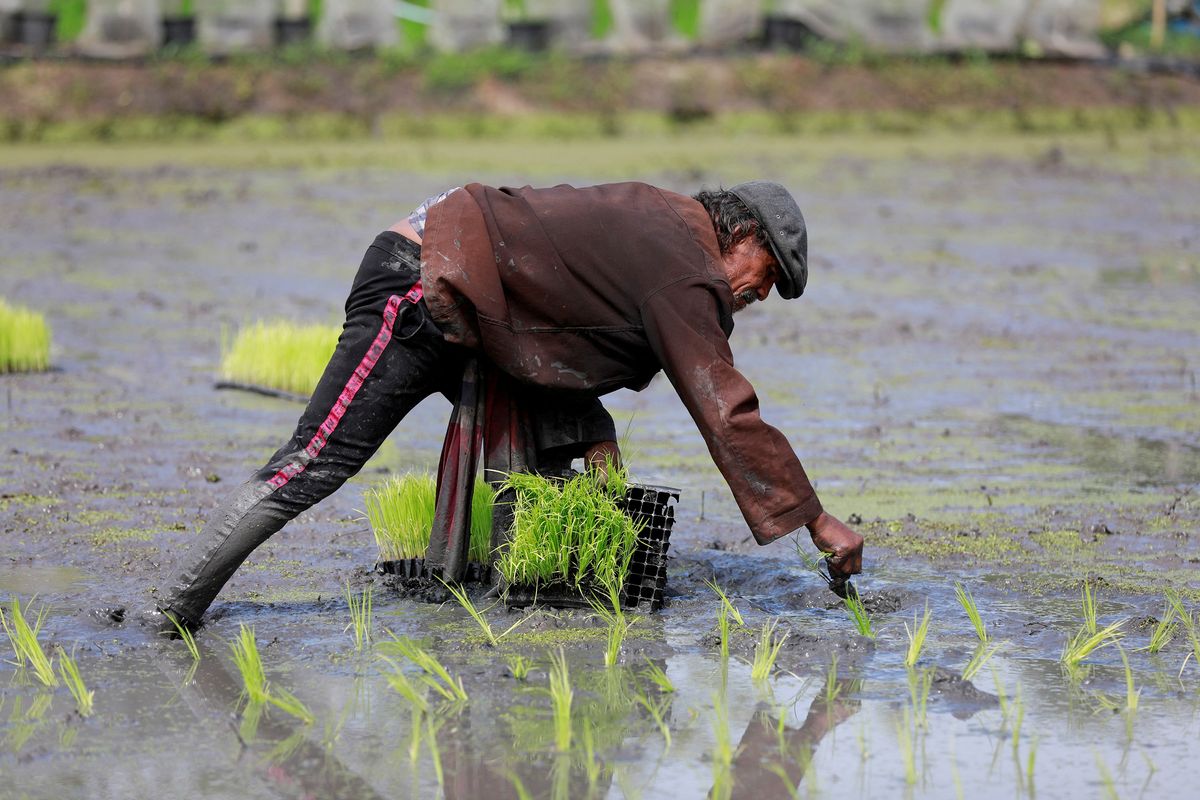Thailand's rice exports skyrocket after India's rice export ban
According to the Thai commerce minister, the country isn't stopping its rice exports.

A few minutes every morning is all you need.
Stay up to date on the world's Headlines and Human Stories. It's fun, it's factual, it's fluff-free.
The backstory: Against the backdrop of the ongoing Russia-Ukraine conflict, the global food supply chain is being affected. To help with this issue, Turkey and the UN helped establish the Black Sea Grain Initiative last year. Basically, it was an agreement to make sure that ships carrying grain could sail safely through the Black Sea. This was a big deal because Ukraine is a major global supplier of grain, and its exports were piling up in the country because of the war. But then Russia recently decided to back out of this deal. This move is causing some chaos in the prices of commodities and grains worldwide, and people are worried about a potential global food crisis.
More recently: On top of all this, last month, India, the world's top rice exporter responsible for over 40% of the world's rice supply, decided to pause its primary rice exports to stabilize its domestic pricing. This move was expected to affect Asian and African countries the most, with millions relying on these exports for their daily diets.
Thailand and Vietnam are also big players when it comes to exporting rice, coming in second and third place globally. Lately, they've seen some price hikes on the crop since India’s ban has tightened global supplies. In fact, Vietnam's rice prices haven't been this high since 2011, and Thailand is also seeing prices at levels it hasn’t seen in over two years. Last week, rice exporters in Thailand and Vietnam were reportedly in the process of renegotiating deals for around 500,000 metric tons of rice that were supposed to be shipped in August because of the increased costs.
The United Arab Emirates also announced it would ban rice exports for four months, including rice of Indian origin.
The development: According to the Thai commerce minister, the country isn't stopping its rice exports. It said on Monday that it has enough supply to keep up with local demand and still keep those exports flowing. With India out of the picture at the moment, Thai rice producers are seizing the opportunity (and the extra profits from those price hikes), especially in Africa, which usually gets a lot of its rice from India.
It's predicted that Thailand is on track to ship over 8 million metric tons of rice this year, according to the president of the Thai Rice Exporters Association. And the nation has already shipped 4.8 million metric tons in just the first seven months.
But the Thai government is also committed to preventing a sharp increase in domestic rice prices. The commerce minister assured that inflation is expected to stay low. Vietnam also commented last week that it had no plans to pause its exports either, with the government calling on a balance between exports and domestic supplies to keep prices in check.
Key comments:
"With India's export ban, global prices rise as volumes drop ... farmers can sell paddy rice at higher prices," said Thailand minister Jurin Laksanawisit.
"As rice exports remain normal, domestic consumption is not affected yet but paddy rice prices are higher, so rice prices must be managed to stay at appropriate levels," said Laksanawisit.
"The world market is very turbulent because of speculation in every market, affecting countries that do not have stocks in hand," said Charoen Laothamatas, president of the Thai Rice Exporters Association.
"Now we're worried about old contracts with delivery over the next two or three weeks as prices are quite volatile," said Laothamatas. "But this should be a temporary event until there is more clarity from India."
“Global rice price will have the potential to increase further in the event that rice production in Thailand decreases significantly year on year,” said Rabobank’s senior analyst Oscar Tjakra to CNBC.




Comments ()